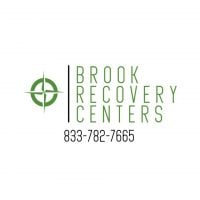High Point Treatment Center
Drug Rehab Center in Plymouth, Massachusetts
High Point Treatment Center in Plymouth, Massachusetts is an accredited addiction treatment facility offering a wide range of services and programs to help individuals overcome substance abuse and achieve lasting recovery, including detox, rehabilitation, dual diagnosis treatment, and various levels of care.
About This Plymouth, MA Facility
High Point Treatment Center - School Street, situated in Plymouth, Massachusetts, is a substance abuse and mental health facility offering a wide array of services to its clients. With a focus on comprehensive care, this center provides counseling, psychiatric evaluations, medication management, and specialized programs such as Suboxone treatment and driver/alcohol education.
• Tailored programs: High Point Treatment Center offers targeted services like adolescent counseling (CHOICES), Second Offenders aftercare, and Batterers Intervention to address specific needs.
• Criminal justice services: The facility provides support and interventions for individuals navigating the criminal justice system due to substance abuse or related issues.
• Diverse treatment options: From medication management to counseling and evaluations, High Point Treatment Center takes a multifaceted approach to care.
Holding accreditations from JCAHO and SAMHSA, High Point Treatment Center maintains high standards in its treatment programs. The facility's commitment to quality care is evident in its comprehensive services, which aim to support individuals through various stages of recovery.
High Point Treatment Center - School Street addresses a range of substance abuse issues, including alcoholism, opioid addiction, and drug addiction. The facility also provides care for co-occurring mental health disorders, offering a dual diagnosis approach. Treatment methods encompass counseling, medication management, and specialized programs, with various levels of care available to meet individual needs.
Genders
Ages
Modality
Additional
Accreditations
SAMHSA

JCAHO
Conditions and Issues Treated
Rehab centers exist in Plymouth, MA to help individuals bounce back from substance abuse, which is an umbrella term for drug and alcohol addiction. Drug addiction refers to the use of illegal drugs and improper use of prescription drugs. Centers like High Point Treatment Center provide individuals a chance to access individual and group therapy that can be monumental for recovery.
Substance abuse includes all problems that stem out from using various psychoactive substances. It is also a diagnostic term used by Diagnostic and Statistical Manual of Mental Disorders (DSM-IV) to define the mental and physical impairment or distress caused by misuse and overuse of certain substances in a period of 12 months.
Opioid addiction involves addiction to legal or illegal opioids. It may happen very quickly with any opioid use. Sometimes within a matter of days. Opioid addiction is a known as a high-risk factor for future heroin addiction.
Opioid withdrawal can be extremely uncomfortable and lead the user to continue to use even if they want to quit. Stopping using an opioid requires careful medical observation. Sometimes the withdrawal can persist for many weeks, which can put the user at a high risk for relapse.
It is recommended to receive inpatient treatment and a medically supervised detox like those offered at High Point Treatment Center in Plymouth, MA, MA, to manage the withdrawal process while learning lasting tools to maintain recovery. In some circumstances medications can be used to manage opioid addiction.
Substance use disorder falls under two categories: Alcohol or Drug Abuse and Drug Dependence. An individual suffering from a substance use disorder and mental health disorders is said to have a co-occurring disorder or a dual disorder. Individuals in Plymouth, MA with substance use disorders and mental health problems are said to suffer from a ‘dual diagnosis’.
The most frequently identified mental health issues found in individuals with substance use disorders include anxiety, depression, schizophrenia, and schizoaffective disorder.
Levels of Care Offered
This center offers a variety of custom treatment tailored to individual recovery. Currently available are Aftercare Support, Detox, Drug Rehab, Dual-Diagnosis, Inpatient, Intensive Outpatient, Intervention, Outpatient, Residential, with additional therapies available as listed below.
Detox is the first step of rehab. It involves giving a person time to get the toxins out of their body. During detox, the patient gets ill, and they will often start using again to get rid of these unpleasant feelings. That’s why it’s important to have a medical professional at High Point Treatment Center present. A medical professional will make sure patients don’t start using during detox. They will also likely provide medication to ease their symptoms and coach them through on a mental level.
Inpatient rehab programs like what’s offered at High Point Treatment Center in Plymouth, MA are ideal for covering all the bases that surround one’s addiction. It’s considered the most comprehensive approach to care for people afflicted with addiction. Patients live in a facility where they have access to therapy and medical care 24/7.
Intensive outpatient programs are an integral part of the continuum of care for people addicted to drugs and alcohol. Most intensive outpatient programs in Plymouth, MA comprise a 3-hour session three times a week. Usually, the intensity of these programs diminishes over time. These programs offer a range of services, including counselling, medical treatment, and monitoring alcohol and drug use. The programs are ideal for people who do not need treatment at an inpatient or residential facility and continue to need extended care and support.
Outpatient treatment is treatment that occurs when a patient is not checked into a rehab facility. The patient may show up for therapy sessions, go through detox and engage in other therapies to help them recover. However, they will do so while they live at home in Massachusetts.
Outpatient therapy provided by High Point Treatment Center is usually recommended as a follow up to inpatient therapy. It helps patients adapt to their normal lives after treatment. In some cases, it can also be an alternative to inpatient treatment. People may choose this route if they are unable to leave their jobs, children or if they don’t have the money for inpatient treatment. However, inpatient treatment is the best way to recover from addiction.
Residential treatment programs are those that offer housing and meals in addition to substance abuse treatment. Rehab facilities that offer residential treatment allow patients to focus solely on recovery, in an environment totally separate from their lives. Some rehab centers specialize in short-term residential treatment (a few days to a week or two), while others solely provide treatment on a long-term basis (several weeks to months). Some offer both, and tailor treatment to the patient’s individual requirements.
An intervention is a meeting held by families and friends of the addicted party, managed by High Point Treatment Center. It lets the person know that their loved ones are concerned about them. It is intended to make the addicted party agree to get help.
Interventions are often hosted by a mental health professional in Massachusetts who knows how to communicate with people dealing with addiction. These intervention services can make all the difference when it comes to getting loved ones to agree to treatment.
Aftercare support involves the support given to a Plymouth, Massachusetts patient after they complete treatment. It helps them adjust to normal life. It may include setting them up in a halfway house and enrolling them in programs like Narcotics Anonymous (NA) and Alcoholics Anonymous (AA). High Point Treatment Center‘s patients may also be provided with career training to help them get back into the job force.
High Point Treatment Center‘s Therapies & Programs
Individual therapy aims to identify the core issues that would have led the patient to substance abuse and address the root cause effectively. Patients find the therapist as a person who they can trust. It helps them to open up and discuss personal and sensitive issues, which they may not be comfortable discussing in a group.
Couples therapy is an approach wherein the patients and their partners are engaged together as a part of the treatment process. When a person becomes a victim of substance abuse, it affects the patient and the people around him, particularly his partner. Their relationship can become strained due to lack of communication, financial issues, loss of trust, lack of intimacy, and physical abuse in more severe cases.
Couples therapy addresses these issues and tries to rebuild the trust between the partners. The partner’s involvement in the process will result in greater chances of treatment success and sustained recovery.
Family therapy is a set of therapeutic approaches that assumes that the entire family is a system. It utilizes the strengths and resources of the family to help the patient refrain from resorting to substance abuse. It helps to repair relationships and improve communication between family members.
Group therapy happens at High Point Treatment Center in a controlled group environment, as opposed to a one-on-one setting. It supports Plymouth, MA patients’ recovery by offering a sense of comfort and letting them know that they are not alone. Through shared conversations, patients also learn to develop faith and understanding and gain insight on their addictions.
Unresolved trauma is often a key reason why many patients resorted to substance abuse. Trauma therapy refers to treatment wherein specialist therapists help the patients to resolve the trauma that led the patients to substance abuse. The trauma could be physical abuse, sexual abuse, war, natural disasters, divorce, accident, loss of a loved one, etc. Thinking of these traumatic events causes emotional disturbances like anxiety, depression and results in addiction. If trauma is the primary cause of substance abuse, then both issues must be addressed. Otherwise, there is a risk of relapse. Trauma therapy also improves the cognitive functions and provides long term benefits.
Dialectical Behavior Therapy (DBT) is an improved version of Cognitive Behavioral Therapy (CBT). DBT is a treatment of choice for people suffering from self-harming behaviors characterized by cutting and suicidal thoughts or inclinations.
This treatment is developed to help individuals recognize their thought patterns, behaviors, and feelings. It has demonstrated its effectiveness for people that are finding it difficult to control their emotions and urges. Conditions such as obsessive-compulsive disorder and borderline personality disorder also benefit from DBT as it imparts individuals stress-management techniques and enhanced self-esteem so they can sustain their sobriety by reducing the impact of triggers and out-of-control emotions.
Cognitive behavioral therapy (CBT) is a way of addressing concerns through talking. It can be used in individual counseling sessions. Talking through issues with professionals at High Point Treatment Center can identify sources of discomfort or unhealthy thoughts. It is a way of learning about yourself and your individual perceptions. CBT is a healthy way of addressing some behaviors which may be bringing unintended consequences in your life.
Rational Emotive Behavior Therapy (REBT) sees a person suffering from substance addiction to have illogical reasoning, counterproductive actions, and does not see things clearly. Due to this, REBT deals with cognition, images, and behavior extensively to rectify the client’s bad habits. REBT pushes an individual to become more reasonable and choose a life without the repercussions of addictions.
Patients at High Point Treatment Center in Plymouth, MA learn how to self-soothe by conducting rational self-counseling. REBT provides their patients with the skill sets necessary in handling problems all by themselves, without seeking professional help. The process calls for practice, reiteration, and bolstering the new way of thinking being introduced to the patient.
Nicotine replacement therapy (NRT) is a treatment that helps people to quit smoking. NRT reduces the withdrawal symptoms by giving nicotine in low doses. It is safe for most adults, teens and pregnant women should not undergo NRT. Research shows that the use of NRT doubles the chances of quitting smoking.
Contingency management is a way to help motivate someone to remain substance free. It is a process of rewarding positive choices and good outcomes. As humans we are wired to recreate experiences that lead to positive feelings. Through this method incentives are used for completing positive steps towards a sober life. This may be a reward for attending meetings, remaining sober or for employment goals.
Payment Options Accepted
For specific insurance or payment methods please contact us.
Is your insurance accepted?
Ask an expert, call (888) 674-0062
Additional Details
Specifics, location, and helpful extra information.
Plymouth, Massachusetts 02360 Phone Number(508) 830-1234 Meta DetailsUpdated April 15, 2024
Staff Verified
Patient Reviews
There are no reviews yet. Be the first one to write one.
Plymouth, Massachusetts Addiction Information
Massachusetts has one of the highest rates of drug abuse in the country. More than half a million Massachusetts residents abuse alcohol while more than 1.5 million use illegal drugs each year. This drug and alcohol usage is the cause of over 8% of all deaths in the state. In 2017, Massachusetts ranked in the top 10 of the states with the highest opioid overdose rates.
The severity of drug or alcohol addiction in Plymouth, MA, can vary depending on the person. In 2014, there were 946 drug-related arrests in Plymouth, MA. The percentage of adults aged 18 or older in Plymouth who reported binge drinking was about 17.5 percent. The type of treatments available in Plymouth can vary depending on the drug rehabilitation center chosen. However, some of the most common treatments include detoxification, counseling, and aftercare.
Treatment in Nearby Cities
- Salisbury, MA (62.0 mi.)
- Hopedale, MA (46.5 mi.)
- Lowell, MA (57.4 mi.)
- West Springfield, MA (100.9 mi.)
- Amherst, MA (99.3 mi.)
Centers near High Point Treatment Center
The facility name, logo and brand are the property and registered trademarks of High Point Treatment Center, and are being used for identification and informational purposes only. Use of these names, logos and brands shall not imply endorsement. RehabNow.org is not affiliated with or sponsored by High Point Treatment Center.







